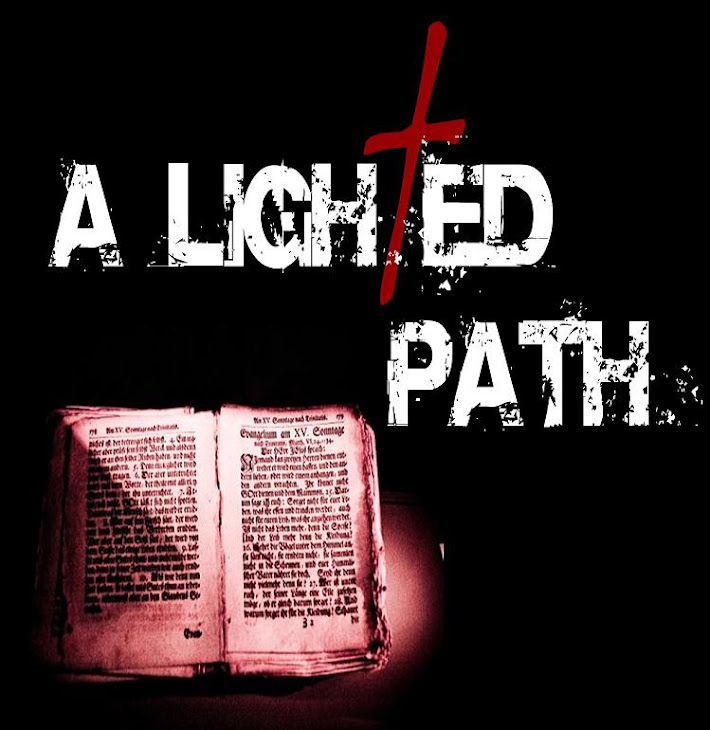So...if you could have spent some time in our home over the past week or so, you would have been witness to a "theological" conversation between my wife and I. First of all, those are the best type of theological conversation because she has not been tainted with various theological teaching and theories. She simply approaches knowledge of God from the perspective of faith. Maybe we would all do well to approach it in that manner. Plus, it enables me to make an attempt at speaking theologically in a way that can be understood by those who are not trained in the area. Isn't that what we are being trained to do anyway?
The question that was pondered was...who raised Jesus from the dead? It may seem like a stupid question...but allow us to ponder this for a moment. Was it the Father who raised Jesus from the dead, or is it essential to believe that Jesus raised Himself from the dead? If we believe that Christ conquered death in His death on the cross...then I guess it can be the Father. However, if you believe that Christ's resurrection is what conquered death...then it seems as though Christ had to doing the raising on His own. This could be supported if we assert that Christ is the keeper of the keys to heaven and hell.
It seems, at this point anyway, that one's answer to this question is dependent upon whether or not it is the death or resurrection that overcame death. If Christ came to conquer death, then He had to do this on His own. If it was the Father who did the raising...then how can the ressurection be significant?
A second discussion that developed out of this was...what happened to the Trinity when Christ died? If we subscribe to the concept that Jesus was forsaken, what happened to the relationship between the Father, Son, and Holy Spirit? If we subscribe to the statement that Christ descended to hell in the Apostle's Creed, then this is an ever more prominent issue.
The essence of the question concerns how Jesus was forsaken. In order to take on the sins of the world, Jesus had to experience what we deserved for our sinfulness. What is the culmination of our sinfulness? A separation from God. This is interesting. How does a person of the Trinity experience separation?
Many answers have developed. There were two major possibilities that came up. First, maybe the Trinity did cease to exist until the resurrection. Secondly, perhaps there was no separation, which would indicate, in some way, that Jesus did not recieve the cost of our sins.
To wrap this up sooner rather than later...I conclude that the answer is both...sort of. You see, Christ is fully human and fully divine. We have no problem stating and believing that to be true. He can walk among us and be tempted as we are while, at the same time, being fully God.
I believe this answers both questions that I posed. In Jesus' death, He did experience the consequences of our sins. He felt the separation from God. He knew, during that time, what it was like to be totally and completely out of the presence of God. However, He still remained a person of the Trinity. I know...it sounds rediculous and contrary to commonsense. Many times, commonsense is wrong anyway...just as it is in trying to understand the Trinity itself, the incarnation, etc.
Since Jesus can be fully God and fully human, he can experience the reality of being God, while, at the same time, experience the reality of being human. He can experience temptation, sorrow, pain, and many other things that we experience...and...at the same time know what it means to be in a perfect, harmonious relationship with our heavenly Father. If you accept my proposal, which I am sure is not unique to me, than accepting that Jesus can feel complete separation from the Father and the Holy Spirit while still being in the Triune relationship is completely intelligible...and valid.
Furthermore...if Jesus can exist in such a relationship, then Jesus can play a role in His own resurrection. He can raise Himself. He can do this because the divine characteristics of Jesus did not cease to be. This still maintains the importance of the resurrection as a prime role in overcoming death.
To conclude...the reality of who Jesus is answers the questions that I posed. The supposed contradiction between Christ being human and Christ being divine is a false dichotomy that all-too-often serves as a stumbling block when we do not even realize it. There are many issues and questions that are followed with..."How can this be?" The answer...many times...is...because of who Jesus is. At least that is what I see the answer to these questions to be.
Links
John 1:9-12
The true light that gives light to every man was coming into the world. He was in the world, and though the world was made through him, the world did not recognize him. He came to that which was his own, but his own did not receive him. Yet to all who received him, to those who believed in his name, he gave the right to become children of God.

No comments:
Post a Comment